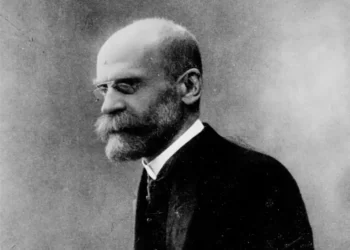Table of Contents
Pierre Bourdieu, a prominent French sociologist, has left an indelible mark on the field of sociology. His theories and concepts have shaped contemporary sociological thought and provided deep insights into the functioning of society. Bourdieu’s work spans various aspects of social life, including education, culture, power, and social stratification. Through his innovative concepts such as habitus, capital, and field, Bourdieu offers a comprehensive framework to understand the complexities of social interactions and structures. This article delves into the key components of Bourdieu’s work, exploring their implications and significance in sociological studies.
Habitus
One of Bourdieu’s most influential concepts is that of habitus. Habitus refers to the deeply ingrained habits, skills, and dispositions that individuals acquire through their life experiences. It is a system of lasting, transposable dispositions which integrates past experiences into the present and future behavior. According to Bourdieu, habitus shapes our perceptions, thoughts, and actions, guiding how we navigate the social world. It is through habitus that social structures are reproduced, as individuals unconsciously perpetuate the norms and practices they have internalized. This concept challenges the notion of individual autonomy by highlighting the subtle yet powerful influence of socialization on behavior.
The formation of habitus begins in early childhood and continues throughout an individual’s life. Family, education, and social environment play crucial roles in shaping one’s habitus. For instance, children from different social classes are exposed to distinct cultural practices and values, which become embedded in their habitus. This, in turn, influences their aspirations, choices, and interactions. Bourdieu’s concept of habitus underscores the importance of considering historical and social contexts in understanding individual actions and social phenomena.
Moreover, habitus is not static; it evolves with changing circumstances and experiences. While it primarily functions to reproduce existing social structures, it also allows for agency and transformation. Individuals can develop new dispositions and adapt their habitus in response to novel situations. This dynamic nature of habitus highlights the interplay between structure and agency, a central theme in Bourdieu’s work. By examining habitus, sociologists can gain insights into the mechanisms of social reproduction and change.
Capital
Bourdieu’s theory of capital extends beyond the economic realm to encompass various forms of resources that individuals possess. He identifies four main types of capital: economic, cultural, social, and symbolic. Economic capital refers to material wealth and financial assets. Cultural capital includes educational qualifications, cultural knowledge, and competencies. Social capital pertains to social networks, relationships, and connections. Symbolic capital involves prestige, recognition, and honor.
Cultural capital, in particular, plays a significant role in Bourdieu’s analysis of social inequality. He argues that cultural capital is transmitted within families and educational institutions, perpetuating class distinctions. For instance, children from affluent families often have access to cultural resources such as books, art, and music, which enhance their cultural capital. This advantage is further reinforced through the education system, where cultural capital is recognized and rewarded. Consequently, individuals with higher cultural capital are better positioned to succeed academically and professionally.
Social capital, another critical concept, emphasizes the value of social networks and relationships. Bourdieu posits that social capital facilitates access to resources and opportunities, reinforcing social stratification. For example, individuals with extensive social networks can leverage these connections for job opportunities, social support, and other benefits. The unequal distribution of social capital contributes to the persistence of social inequalities.
Symbolic capital, often overlooked, is crucial for understanding power dynamics. It encompasses the social recognition and legitimacy that individuals or groups possess. Symbolic capital is closely linked to other forms of capital, as it enhances one’s ability to accumulate and convert different types of capital. For instance, a reputable academic institution can confer symbolic capital to its graduates, boosting their chances of acquiring economic and social capital. Bourdieu’s concept of capital highlights the multifaceted nature of social resources and their role in maintaining social hierarchies.
Field
In Bourdieu’s theoretical framework, the concept of field is instrumental in analyzing social life. A field is a structured social space with its own rules, norms, and power relations. It is a network of positions occupied by individuals or institutions, each with varying degrees of power and capital. Fields can be found in various domains of social life, such as education, politics, art, and the economy.







